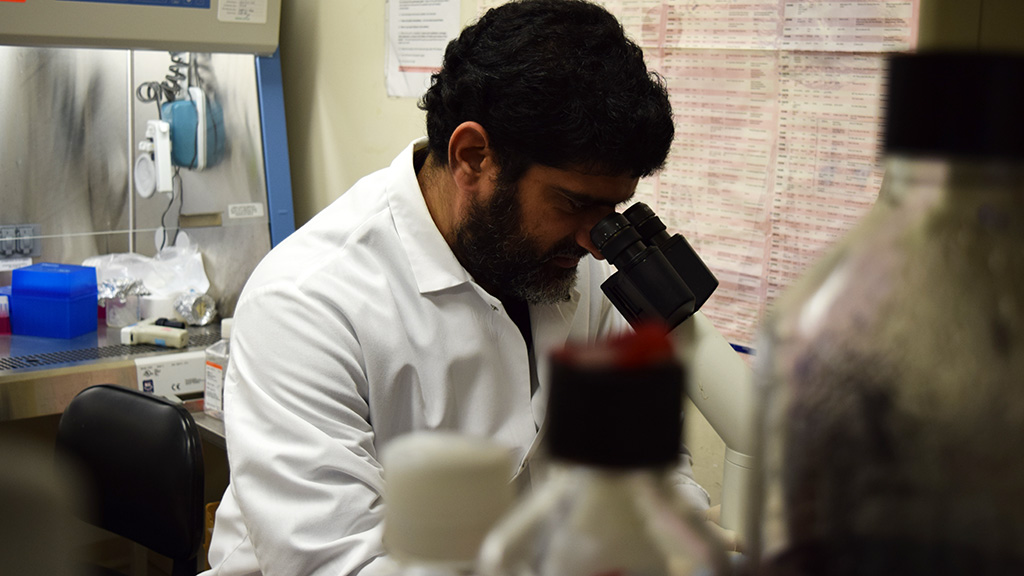Overview
Radiation can induce several immunological changes in cancer cells and the tumor micro-environment, which can be translated to patients to help destroy cancer cells within the irradiated fields as well as distant, metastatic sites.
Research Areas
Tumor regression outside the irradiated field, known as the abscopal effect, is a recognized phenomenon mediated by lymphocytes and enhanced by checkpoint blockade. Radiation can lead to increased CD8 T cell infiltration, increased in MHC class 1 expression, increased PD-L1 expression on tumor surface, release of DAMPs, release of neoantigens, and many other changes in the tumor microenvironment which can be exploited to cure many cancer. The combination of radiation and immunotherapy is currently an exciting avenue of pre-clinical and clinical investigation. The synergy between these two treatment modalities has the potential to expand the role of radiation from a purely local therapy, to a role in advanced and metastatic disease.
- One specific area of research interest has been to develop a melanoma mouse model to understand the different type of immunological changes that occur after varying dose of radiation. We have used this mouse model to characterize the changes within the irradiated volume as well as at more remote, distant sites. We have used this mouse mode to show how different immunotherapy agents ability to control metastatic tumor is enhanced in combination with irradiation, and helped advanced our understanding regarding optimal irradiation dose, optimal timing of irradiation, and optimal sequencing of irradiation with respect to various immunotherapy and immune-modulating agents. These finding having been used to shape ongoing clinical trials.
- Another major area of research for our lab is to develop biomarkers of post irradiation and post immunotherapy response. Some or our work has looked at how tumor exosomes, serum LDH, lymphocyte to neutrophil ratio, and activated CD 8 T cells can be used to predict response.
- Another major area of research for our lab is to enhance our ability to better image the tumor and tumor micro-environment pre and post therapy using spectroscopic MRI imaging as well as high resolution ultrasound imaging.
Low-Dose Chest Radiotherapy for Patients with COVID-19
Individuals with advanced age and comorbidities face higher risk of death from COVID-19, especially once ventilator-dependent. Respiratory decline in COVID-19 is mediated by a pneumonic aberrant immune cytokine storm. In a pilot trial led by Khan Lab investigators, low-dose radiation was used to treat pneumonia in the pre-antibiotic era. Initial results show radiation immunomodulatory effects may improve outcomes in COVID-19.
For a full description of this trial, visit ClinicalTrials.gov.
Related publications:
- Low-dose whole-lung radiation for COVID-19 pneumonia: Planned day 7 interim analysis of a registered clinical trial
Cancer, Vol. 126, Issue 23 - Low-Dose Whole-Lung Irradiation for COVID-19 Pneumonia: Final Results of a Pilot Study
International Journal of Radiation Oncology, Biology, Physics, Vol. 109, Issue 4
Related media coverage:
Research Funding
- American Cancer Society
- Merck Pharmaceuticals
- Department of Radiation Oncology, Emory University School of Medicine
- Melanoma Team Science Award, Winship Cancer Institute of Emory University
- National Institutes of Health (NIH)
- American Society of Clinical Oncology (ASCO)
- Radiological Society of North America (RSNA)


